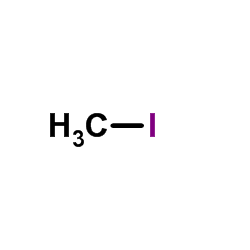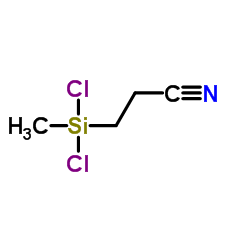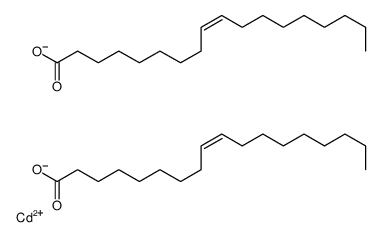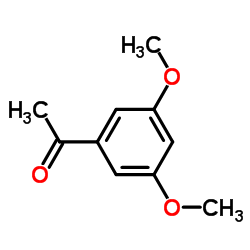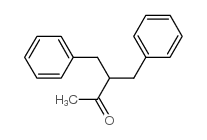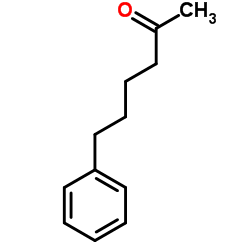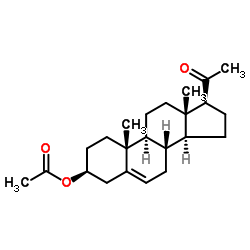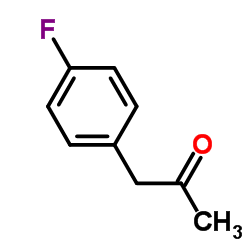506-82-1
| 中文名 | 高纯二甲基镉 |
|---|---|
| 英文名 | cadmium(2+),carbanide |
| 英文别名 |
DIMETHYLCADMIUM
methyl-Cd-methyl Cadmiummethyl Cadmium,dimethyl EINECS 208-055-4 |
| 沸点 | 105,5ºC |
|---|---|
| 熔点 | -4.5ºC |
| 分子式 | C2H6Cd |
| 分子量 | 142.48000 |
| 精确质量 | 143.95000 |
| LogP | 1.16510 |
| 外观性状 | 无色有毒液体 |
| 储存条件 | 实用中考虑到金属粒子污染,采用内壁涂层的不锈钢鼓泡瓶封装。确保阀门接管畅通,瓶空间充高纯氮气保护,然后关严阀门、拧紧封头。高纯二甲基镉应贮存在冰箱中。危险货物包装标志应符合GB190规定,包装、贮运指示标志应符合GB191规定。产品出口时的运输,参照美国DOT规则GFR部分的有关规定执行。产品运输时瓶外用充氮气的软包装袋保护,并放入塑料袋中,然后封入内衬有无机防火材料的铁盒中,再固定在木箱中。使用二甲基镉应遵守可燃、有毒物质使用有关安全规定及“通则”中有关规定。其余安全注意事项,参见二乙基碲。 |
| 稳定性 | 在空气中易氧化自燃,同水能发生激烈反应。 |
| 计算化学 | 1.疏水参数计算参考值(XlogP):无 2.氢键供体数量:0 3.氢键受体数量:2 4.可旋转化学键数量:0 5.互变异构体数量:无 6.拓扑分子极性表面积0 7.重原子数量:3 8.表面电荷:0 9.复杂度:2.8 10.同位素原子数量:0 11.确定原子立构中心数量:0 12.不确定原子立构中心数量:0 13.确定化学键立构中心数量:0 14.不确定化学键立构中心数量:0 15.共价键单元数量:3 |
| 更多 | 1. 性状:二甲基镉在常温常压下为无色有毒液体。 2. 密度(g/mL,25℃):1.986 3. 相对蒸汽密度(g/mL,空气=1):未确定 4. 熔点(ºC):-4.5 5. 沸点(ºC,常压):105.5 6. 沸点(ºC,60mmHg):未确定 7. 折射率(n20/D):未确定 8. 闪点(ºC):18 9. 比旋光度(º):未确定 10. 自燃点或引燃温度(ºC):未确定 11. 蒸气压(kPa,19ºC):未确定 12. 饱和蒸气压(kPa,25ºC):未确定 13. 燃烧热(KJ/mol):未确定 14. 临界温度(ºC):未确定 15. 临界压力(KPa):未确定 16. 油水(辛醇/水)分配系数的对数值:未确定 17. 爆炸上限(%,V/V):未确定 18. 爆炸下限(%,V/V):未确定 19. 溶解性:未确定 |
|
Section 1: Product Identification Chemical Name:Dimethylcadmium, elec. gr. (99.995+%-Cd) PURATREM **S.STEEL CYL EXTRA** CAS Registry Number:506-82-1 Formula:(CH3)2Cd EINECS Number:none Chemical Family:metal alkyl Synonym:None
Section 2: Composition and Information on Ingredients IngredientCAS NumberPercentACGIH (TWA)OSHA (PEL) Title Compound506-82-1100%0.002mg/m30.005mg/m3 Section 3: Hazards Identification The oral toxicity of cadmium and its compounds is high. The inhalation of cadmium fumes and dust can lead Emergency Overview: to effects on the respiratory tract and the kidneys. May cause cancer. Primary Routes of Exposure:Ingestion, inhalation Eye Contact:May cause mild to severe irritation of the eyes. Skin Contact:May cause mild to severe irritation of the skin. Inhalation of fumes can lead to a cough, headache, shortness of breath and vomiting. Severe exposure can Inhalation: lead to dyspnea. Toxic by inhalation. Ingestion may lead to dizziness, abdominal cramps, vomiting, bloody diarrhea, weakness, and convulsions. Ingestion: Toxic if swallowed. Acute Health Affects:May be irritating to skin, eyes and respiratory tract. Toxic by inhalation and if swallowed. Long term exposure to cadmium and cadmium compounds can lead to effects of the respiratory tract and Chronic Health Affects: kidney damage. Cadmium is a recognized carcinogen of the connective tissue, lungs and the liver. NTP:Yes IARC:Yes OSHA:No SECTION 4: First Aid Measures Immediately flush the eyes with copious amounts of water for at least 10-15 minutes. A victim may need Eye Exposure: assistance in keeping their eye lids open. Get immediate medical attention. Wash the affected area with water. Remove contaminated clothes if necessary. Seek medical assistance if Skin Exposure: irritation persists. Remove the victim to fresh air. Closely monitor the victim for signs of respiratory problems, such as difficulty Inhalation: in breathing, coughing, wheezing, or pain. In such cases seek immediate medical assistance. Seek medical attention immediately. Keep the victim calm. Give the victim water (only if conscious). Induce Ingestion: vomiting only if directed by medical personnel. SECTION 5: Fire Fighting Measures Flash Point:-1°F Autoignition Temperature:None Explosion Limits:None Extinguishing Medium:Foam or dry powder If this product is involved in a fire, fire fighters should be equipped with a NIOSH approved positive pressure Special Fire Fighting Procedures: self-contained breathing apparatus and full protective clothing. Hazardous Combustion andIf involved in a fire this material can emit irritating and toxic fumes. Decomposion Products: Unusual Fire or Explosion Hazards: Material is pyrophoric. The material will ignite on contact with air. SECTION 6: Accidental Release Measures If spilled, the material will ignite emitting iritating and toxic fumes. All personnel must evacuate the area. Spill and Leak Procedures:Emergency crews must be fitted with self-contained breathing apparatus. Burning material can be quenched with dry powders such as dolomite of sodium carbonate. SECTION 7: Handling and Storage The product must be stored and handled under an inert atmosphere of nitrogen or argon. Keep away from Handling and Storage: heat. SECTION 8: Exposure Controls and Personal Protection Always wear approved safety glasses when handling a chemical substance in the laboratory. Use of a face Eye Protection: shield is highly recommended. Skin Protection:Protective gloves and protective clothing must be worn when handling this product. Product must be handled in an inert atmosphere. In the event of a spill or release, adequate ventilation is Ventilation: essential. If the potential exists for a spill or release of this product, workers should be equipped with a self-contained Respirator: breathing apparatus. Product must be handled in an inert atmosphere. In the event of a spill or release, adequate ventilation is Ventilation: essential. Additional Protection:No additional protection required. SECTION 9: Physical and Chemical Properties Color and Form:Colorless liq. Molecular Weight:142.88 Melting Point:none Boiling Point:105.5°C Vapor Pressure:28mm (20°C) Specific Gravity:1.985 (18°) Odor:metallic odor Solubility in Water:Reacts vigorously with water SECTION 10: Stability and Reactivity Stability:Moisture sensitive, pyrophoric Hazardous Polymerization:No hazardous polymerization Conditions to Avoid:Contact with air. Water, alcohols, carbonyl compounds, mineral acids, metal salts, sulfur, phosphorus, metals and chlorinated Incompatibility: hydrocarbons Decomposition Products:carbon dioxide, carbon monoxide, and cadmium oxide fumes. SECTION 11: Toxicological Information RTECS Data:No specific information available from the RTECS files. Carcinogenic Effects:No data available Mutagenic Effects:Possible mutagenic effects reported by RTECS Tetratogenic Effects:No data available SECTION 12: Ecological Information Ecological Information:Cadmium is a toxic material and represents a hazard to aquatic life. SECTION 13: Disposal Considerations Disposal:Dispose of according to local, state and federal regulations. SECTION 14: Transportation Shipping Name (CFR):Organometallic substance,Liquid,Pyrophoric,Water-reactive Hazard Class (CFR):4.2 Additional Hazard Class (CFR):4.3 Packaging Group (CFR):I UN ID Number (CFR):UN# 3394 Shipping Name (IATA):Prohibited Hazard Class (IATA):NA Additional Hazard Class (IATA):NA Packaging Group (IATA):NA UN ID Number (IATA):UN# 3394 SECTION 15: Regulatory Information TSCA:Not listed in TSCA inventory SARA (Title 313):Title Compound: See Category Code N078 for reporting. Second Ingredient:None SECTION 16 - ADDITIONAL INFORMATION N/A |
|
毒理学数据: 二甲基镉的毒性强,吸入后进入肺、肝脏、肾脏,在肠管壁中残留较高浓度,在肺组织中长时间附着。它对眼、皮肤、上呼吸道产生刺激作用,损伤支气管、肺泡、胃和肾。最高容许浓度0.05mg/m3。
|
| 风险声明 (欧洲) | 17-20/21/22 |
|---|---|
| 安全声明 (欧洲) | 7/8-16-23-36/37/39-45 |
| 危险品运输编码 | UN 2845 |
| 危险类别 | 4.2 |
| 海关编码 | 2931900090 |
|
~% 
506-82-1 |
| 文献:de Mahler Bulletin de la Societe Chimique de France, 1922 , vol. <4>31, p. 125 |
|
~% 
506-82-1 |
| 文献:Loehr Justus Liebigs Annalen der Chemie, 1891 , vol. 261, p. 50 |
|
~% 
506-82-1 |
| 文献:Gilman; Nelson Recueil des Travaux Chimiques des Pays-Bas, 1936 , vol. 55, p. 518,528, 529 Journal of the American Chemical Society, 1939 , vol. 61, p. 741 |
| 上游产品 3 | |
|---|---|
| 下游产品 10 | |
| 海关编码 | 2931900090 |
|---|---|
| 中文概述 | 2931900090. 其他有机-无机化合物. 增值税率:17.0%. 退税率:13.0%. 监管条件:AB(入境货物通关单,出境货物通关单). 最惠国关税:6.5%. 普通关税:30.0% |
| Summary | 2931900090. other organo-inorganic compounds. VAT:17.0%. Tax rebate rate:13.0%. Supervision conditions:AB(certificate of inspection for goods inward,certificate of inspection for goods outward). MFN tariff:6.5%. General tariff:30.0% |



